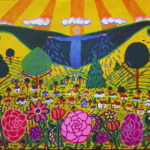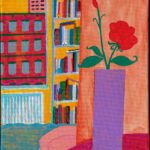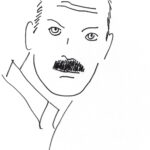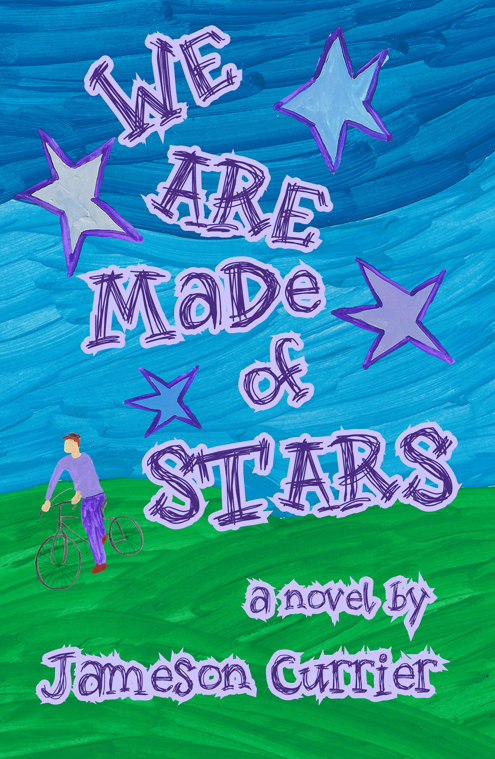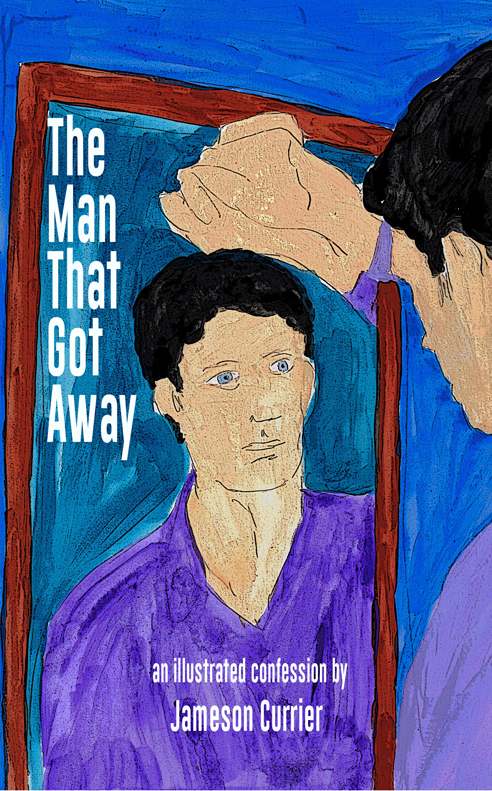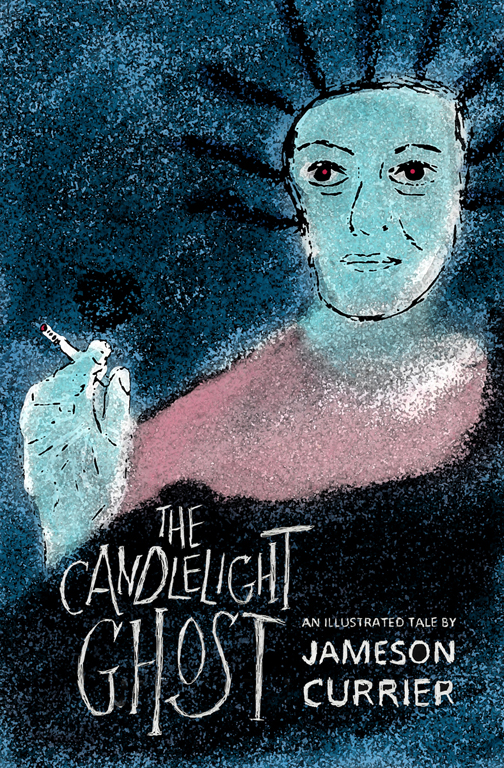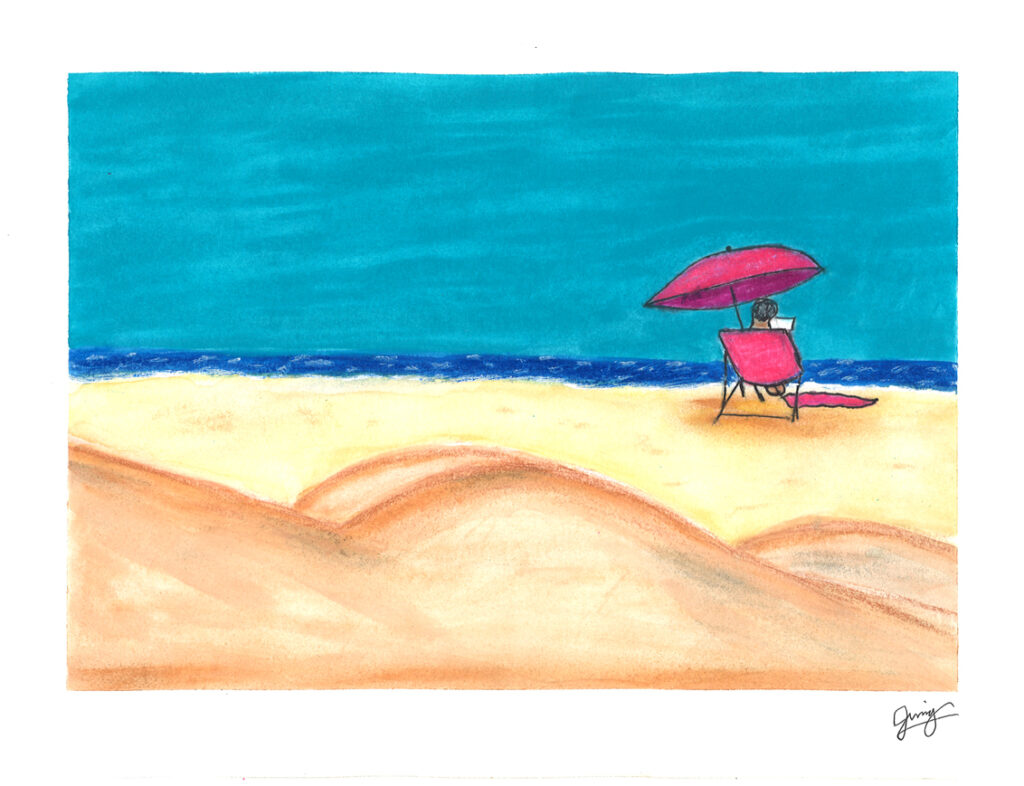
“A Perfect Day for the Beach”
art by Jameson Currier
Colored pencil, watercolor, pastel and white out on 9×12 inch paper
20180415003
THAT SUMMER
by Jameson Currier
I remember the afternoon we spent at the beach and he remarked why would anyone want to bring reading material along when there was so much to see. Look at that one, he said, tipping his head in the direction of a young man whose shoulders were broader than his hips. Dark and handsome, I thought. Sexy, not smart, he said.
That was not the only one who caught his eye. He had a fascination that summer for tall blond men. I remember I had known him long enough by then not to be jealous of his attraction to other men. I was old enough and smart enough to know that I had something of his which they, even with their masculine perfection, at that moment did not possess—his friendship of many years. I knew then, that summer, that we were never destined to be lovers, that what we were to be to one another were simply and especially, best friends.
We went to the beach together for many years. But that summer our first day on the beach he spent staring at the water, staring at the sky, staring at the constant parade of unclothed bodies. He refused to go into the water, afraid it would make his hair stand up in spikes, but he took every opportunity to walk away from where we had laid our blanket, journeying to the concession stand, the boardwalk, in the direction of a tall blond man.
I did not mind that summer, I was lost in books I remember. I was caught up in my own need to escape, my own dissatisfaction of a year of frustrating dates. And I felt sure that someone would interrupt my reading, that the act of reading itself would intrigue a man into approaching me.
Fantasy, he said, when I explained it to him. He had rented a large green and yellow striped beach umbrella and shoved it, tilted, into the sand. When he walked away I looked up and watched the wind flapping the brim. I sat underneath it reading and waiting. I remember I fell asleep and when I awoke he had returned. He was again staring at the water, staring at the sky, staring at the boys. He, too, that summer was waiting for someone. I remember he nudged me and I looked up at a man passing by. The man returned my look and I felt my heart quicken. I knew then anything and everything was still possible.
He would recall the anatomical details, of course. He would remember the bare chests and tan lines and bulging swimsuits. The body as its soul. He met the same kind of men at the beach that he hated dating in the city—shallow and narcissistic, only interested in one night stands—but there, the mere fact that they were skin against the skin of the sky, mesmerized him. One night at the bar when he had stopped dancing he stood beside me, sweating, and said—Anyone can look perfect with the proper lighting. And he went home with anyone who would ask.
This summer I went back to the beach. He was not there, of course. Nor were any of the others we met that year. I wondered if they, too, had died. I sat with another friend on a towel, not far from where we had, years ago, pitched that crazy oversized umbrella. This summer I noticed I needed to wear sunglasses; I was forever squinting. Radios, this summer, seemed to be spilling music everywhere. I could not stay at the beach for more than an hour. This summer, I noticed, I was more restless. Everyone seemed younger, more beautiful than I remembered. But I learned that though times change, a handsome man still rends the heart helpless.
And this summer I drove past that shack of a diner off the highway where we ate so many meals. The shutters had been repainted and hedges planted along the walkway. But it also seemed smaller, I know, because my memory had enlarged it over the years. But I was afraid, though, to continue toward the house, afraid that it, too, might have changed.
He would have tilted back his head and produced a sharp, rowdy laugh, saying I was silly and that it was only a house. He would have remembered the warped front door, the bald spot on the lawn beneath the hammock, and the way the soles of our bare feet turned black from walking on the sooty floor of the kitchen.
These are only remembered fragments of our summer together, examined, now, with the same curiosity as the shards of shells along the shore. There were, of course, the days it rained that summer, the days we spent hunched up in blankets playing backgammon and watching old movies on TV, and the mornings we walked through fog so dense we could only sense each other’s presence. And there was the night we sat together on the empty beach, bathed by the warm ocean breeze beneath a sky of fiery constellations. Isn’t it perfect? he said, not expecting anything more from me, not a touch or a kiss or even a word. And all I expected was for him to be a part of my life forever.
So this is what happened: a young man moves to a city and meets another young man. They become friends and share a house near the beach one summer. The part that is difficult is when on man dies unexpectedly. Who would believe that the images of one summer are what would be remembered if the larger portrait of life had not been stolen before completion? Time passes; little things provoke: the smell of coconut oil, sand between the sheets. “My friend” becomes an emptied phrase repeated throughout the years.
And I have not forgotten the sound of the waves that summer, rising, falling, and breaking, silver blue to the horizon, engraved in my memory like an etching on glass.
Who knew then where we were headed, my friend? Who knew then I would remember it like this?
_________
“That Summer” first appeared in Backspace, edited by Kimberly J. Smith (Vol. 2, No. 1, Fall 1993), pp. 25-27. It was also published as “Undercurrents” in The Philadelphia Inquirer Magazine, edited by Michael Martin Mills (Sunday, June 26, 1994), p. 4. It was also published as “That Summer” in David’s Place Journal, edited by Rick Osborne and Marsh Cassady (Vol. 1.1, Fall 1994), pp. 113-114. It was also published as “Memories of a Lost Summer” in Sunshine magazine, Ft. Lauderdale Sun Sentinel, edited by John Parkyn (April 16, 1995), p. 6. It was also published as “That Summer” in The Slate, edited by Karl Andruscavage, Chriss Dall, Patty Delaney, and Rachel Fulkerson (Vol. II, Issue 1, Summer 1996), pp. 9-11. It was also included in the author’s collection Until My Heart Stops (Chelsea Station Editions, 2015), pp 187-189, and reprinted May 27, 2016 online at Chelsea Station magazine.

